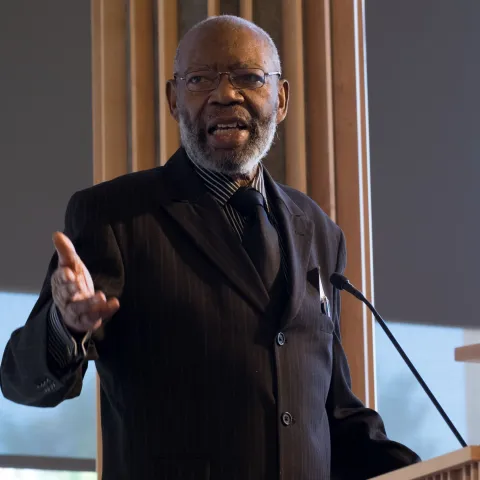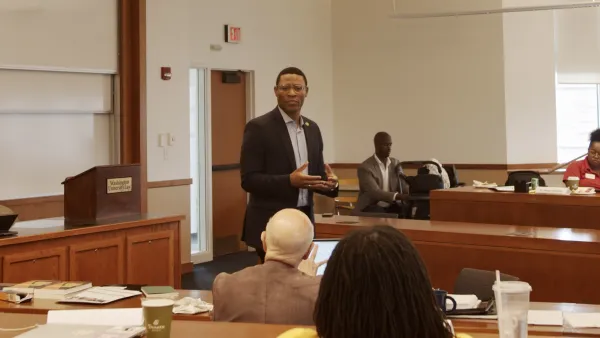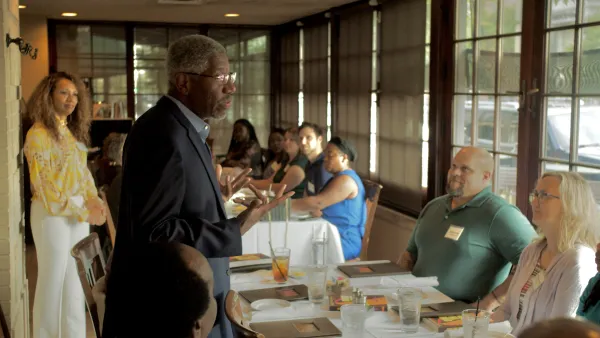Oh behalf of the African and African American Studies faculty, John Baugh pens a touching tribute to his friend and mentor.
The faculty of the Department of African and African American Studies at Washington University in St. Louis mourns the passing of our beloved founding director of Black Studies, Professor Emeritus Robert (Bob) Williams. He was a trailblazer on our campus, in St. Louis, and throughout the nation as one of the leading African American psychologists of all time.
Bob’s storied career began in his home state of Arkansas, where he attended Philander Smith College, graduating cum laude in 1953. He then went on to earn a M.Ed. from Wayne State University in Educational Psychology in 1955, before completing a Ph.D. in psychology in 1961 in clinical psychology within our own department at Washington University in St. Louis. He worked throughout the country on issues of mental health prior to serving as the first director of Black Studies on this campus shortly after being one of the founding members of the Association of Black Psychologists in 1968, becoming the second president of that prestigious organization.
His scholarly contributions were many and substantial. He is well known for having challenged racial bias in standardized testing, through the creation of the Black Intelligence Test of Cultural Homogeneity; a test that was designed with explicit cultural compatibility to the African American experience. He also coined the term “Ebonics,” combining the words “ebony” and “phonics,” and in so doing he revolutionized global linguistic studies of the African slave trade in North and South America. Professor Williams formulated “Black Personality Theory,” and later in his career he described how many white children came to be indoctrinated to embrace racist tendencies through “racial scripting” that promoted misguided myths regarding racial superiority or inferiority. He testified before the U.S. Senate, and was interviewed on national television by Dan Rather, Montel Williams, and Phil Donahue.
Six years ago, members of the Washington University community and other distinguished guests paid intellectual tribute in Professor Williams’ honor during a conference devoted to his legacy that included many of his distinguished peers, including the late Professor Joe White, as well as several of his former students, along with faculty colleagues from Washington University. In addition, a coalition of students representing diverse student organizations on campus made presentations that were inspired by various strands of his vast research.
Professor Williams will long be remembered on our campus and elsewhere for breaking down barriers to equality as he steadfastly challenged the foundations of racism within social science, education, and the society at large. We will miss him mightily, as we collectively embrace his steadfast devotion to pursue and promote justice, while calling out racism and the other forms of “racial scripting” that he decried.



